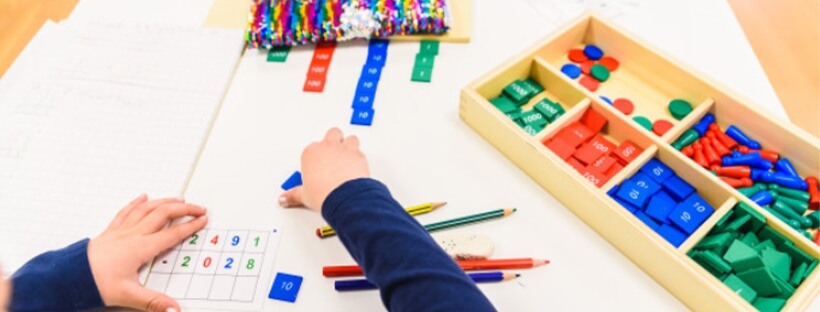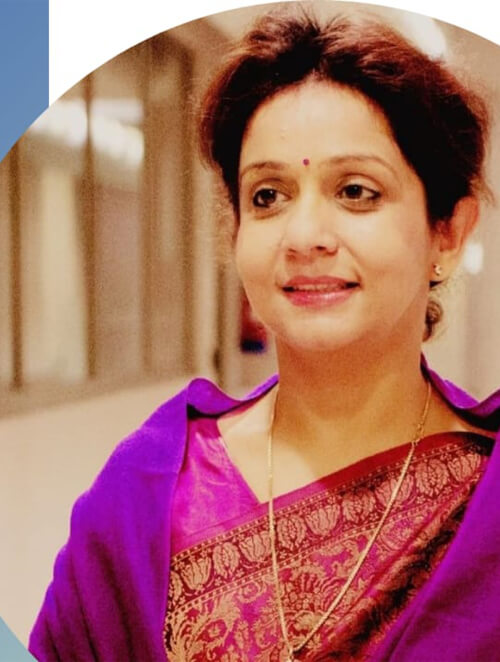Essential Guide to Learning formats in Indian Preschool
 18515
18515

super easy
Humanity has advanced in every aspect of life, and the core reason behind this evolution is the continuous improvement of learning systems for people of all ages, schooling systems being the root of this transition. One of the most significant additions to the schooling system was the introduction of preschools in India, which was a fairly alien concept in the past but has since gained a lot of momentum. Research studies today have also pressed on how important the ages between 3 to 6 are for shaping the neurological structure of the brain, which makes the selection of a competent preschool critical along with the aptest curriculum. Not every child is the same; each one has its own strengths and drawbacks. Their reactions to different situations that they encounter in life depend on these inherent traits. Today’s curriculums also differ in their method of imparting knowledge, and parents are open to choose anyone which suits their child the best. There are four types of curriculums followed widely across preschools across the world – Montessori, Waldorf, Regio Emilia, and Playway, but the two most popularly followed styles in India are Montessori and Playway.
Montessori
The method was founded and named after Dr. Maria Montessori, an Italian physician, and educator who studied children’s behaviors from all backgrounds for more than five decades.
Process:
– It is a method focused on children aged 0 to 12 years, which aims at promoting independence, self-esteem, self-confidence, and help children reach their full potential through purposeful activities undertaken by them. – This type of education can only be imparted by teachers who are certified in the Montessori method of teaching. Diplomas are given out for separate 3-year age groups ranging from 0 to 12 years. – The method focusses on teaching children from different age groups at once under one roof. This enables the younger ones to learn from the older ones while reinforcing already learned materials in the older students and enforcing the quality of leadership. The teacher focusses more on guiding the students more than directing, and the classroom is carefully set to impart education by learning concepts through interaction. – A child gets options to choose from rather than having to answer questions. – This method is inclusive of the concept of an ‘Uninterrupted Work-Period’ where children take up an activity, performing the activity as long as its interest is held, cleaning up, and returning it to the shelf once done. The teachers monitor and support and provide feedback. – All the materials used in this method are authorized materials, all with hidden meaning for children to decipher and eventually learn. They enable a student to assess their progress and correct their mistakes if any.
There are many advantages associated with this method, physical development, through the movement of limbs and body, spiritual development as the child seeks knowledge and is encouraged to do so. There is intellectual development as there is gaining of knowledge, emotional development as there is a positive reinforcement of a work getting accomplished. The child learns social and linguistic skills via interaction and learns the discipline of focus and concentration. There has been criticism of this method as well, stating that it is an outdated method of teaching kids. Some children need external motivation for discipline, which is absent in this method. Primary schools in India do not follow this method of teaching; hence the adaptation of students is not very subtle. Despite these criticisms, this is the most used style of preschools curriculums in India.
Tips for the Guilty Working Parent
It is essential to understand that children only need ‘good enough’ and ‘happy’ parents and not parents who hover around them all the time. Ensure to come up with rituals or home routines that you will prioritize at any cost. Select your priorities with the school your child attends. Do ensure to make time to relax and play as a family. Ensure to schedule time during the weekends to keep up with the assignments/tests from school. Train your kids to solve their problems themselves instead of giving them advice about what to do.
Playway
This method was founded by Friedrich Froebel, a German pedagogue who also incidentally created the concept of and coined the term ‘kindergarten.’ It is a method that focusses on the development of skills, intellect, and feelings of children where playing acts as the driving force, and the entire method is based on activity-based learning. It is based on the naturally favored ‘playing instinct’ of children, and children learn concepts through the fun way of playing.
Process
– Unplanned learning through physical and mental activities form a part of this method where the child becomes obligated to express his self. – It can be customized depending on the child’s interests, and hence learning activities can be devised, ranging from simple to complex ones. – It includes the creation of classrooms that are similar to the homes of children, thus encouraging them to express with freedom. – Students and teachers become alike, and there is active participation by teachers making the whole atmosphere more fun and lighter from a learning perspective. – There is no heaviness of performance and evaluation, all children participate, and no one is left behind. This method is enjoyed most by children, and it fosters more learning since this method is actively accepted by them. All kids get to participate and are given equal exposure and ample opportunities for learning, and it removes the divide between children and teachers. It enables a child to develop motor, creative, imaginative, aesthetic, cognitive, and linguistic skills and fosters self-discipline. On the downside, there is no formal curriculum structure followed and no system of evaluation or performance assessment, hence there is no measure of learning received. The quality of the curriculum can also vary since it depends on the teacher towards creating learning activities. All subjects can’t be taught in this method, and all Indian primary schools don’t follow this method, hence adapting can be a bit difficult.
Follow us-
Instagram/ Facebook/ Youtube/ Pinterest





Leave a Reply